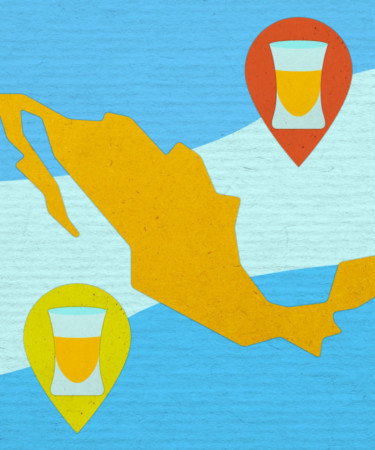Tequila can only be called tequila if it is made from 100 percent Blue Weber agave and produced in the state of Jalisco, Mexico, as well as some municipalities in Guanajuato, Michoacán, Nayarit, and Tamaulipas. Anything else made with Blue Weber Agave outside these areas, or from agave that is not Blue Agave, is not legally tequila.
Trade agreements between Mexico and other countries ensure that this designation is followed — so what happens when an enterprising individual wants to make tequila in another country, like the United States? They’re stuck referring to the resulting liquid as the very unsexy: “spirit distilled/produced from 100 percent Blue Agave.” Some producers have tried to give this spirit names that sound similar to tequila — Temequila is one such example given to a liquid made identically in Temecula, Calif., to the process used to make tequila — but these names, despite how clever, all risk cease-and-desist orders and potential lawsuits.
However, as the tequila boom continues, making the true spirit harder to come by and at higher prices, entrepreneurs will seek to deliver a tequila flavor profile in new formats at lower prices, especially via ready-to-drink (RTD) beverages. Don’t be surprised if you come across more hard seltzers and canned cocktails that list the key ingredient inside as 100 percent Blue Agave spirit. But you’ll know the truth, that the liquid isn’t really tequila, and wasn’t made in Mexico.
